Transiting Cities - Finalist Entry "Networked Ecologies: Rethinking Remediation"
By Bustler Editors|
Friday, Jan 11, 2013
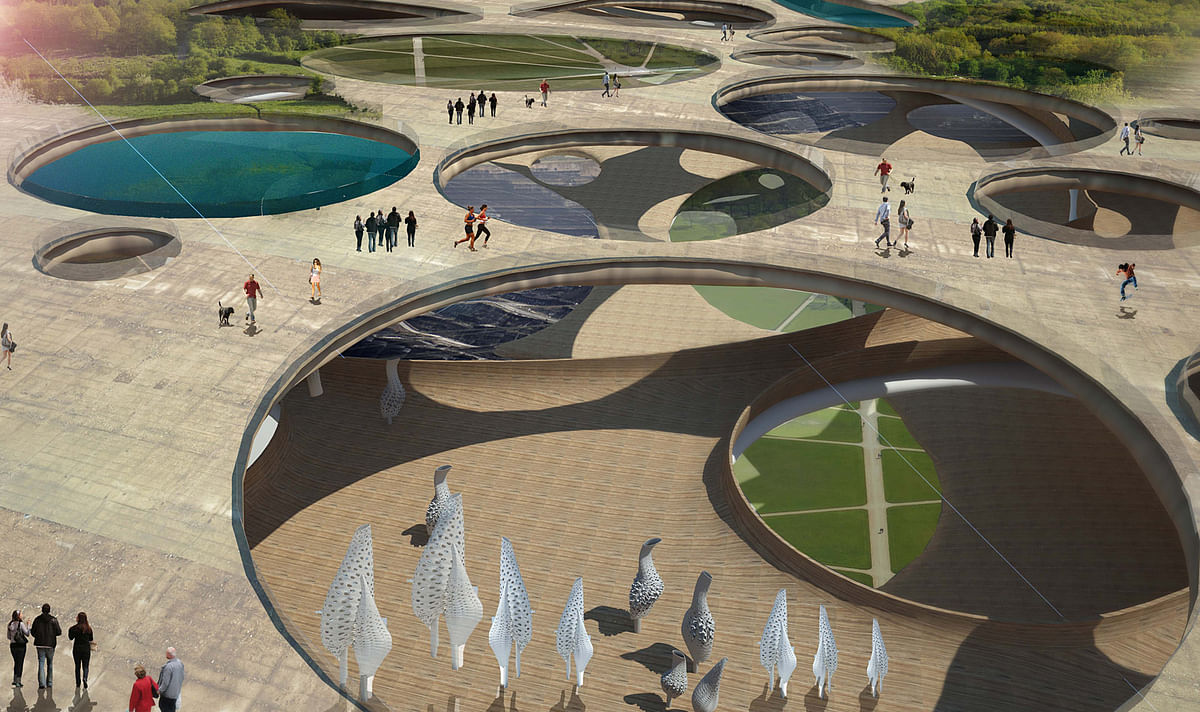
Related
Last fall, the international research project and design ideas competition, "Transiting Cities - Low Carbon Futures," had invited designers and academic institutions from various fields to envision new, innovative and alternative cities of the near future by defining opportunities for transition into low carbon, prosperous, and vibrant communities.
One of the finalist entries, recognized by the jury with an honorable mention, is the concept "Networked Ecologies: Rethinking Remediation" by Arizona-based team Studio One (team members: Mona Ghandi, Carlos Sandoval, and Hassan Sazmand). To see other Transiting Cities finalist entries, click here.
Project Description from the Architects:
The research and competition outcomes are to propose, and demonstrate, a range of design strategies considered through a range of time frames – from short term to long term, temporary to permanent, and staged growth cycles - for transiting cities, such as Latrobe City in South East Victoria [Australia] that is shifting to a low carbon future.
The proposed design strategies are to address the interwoven social, economic, environmental and infrastructural attributes of the city through an integrated approach in order to construct intelligent visions for Latrobe City.
Networked Ecologies: Rethinking Remediation
The inevitable shifts in global climate and economical conditions have made us question and rethink the ability of the cities to resist and adapt to these changes. A city like Latrobe whose landscape, economy and social conditions are based primarily on coal based energy production is particularly vulnerable to the global and local changes.
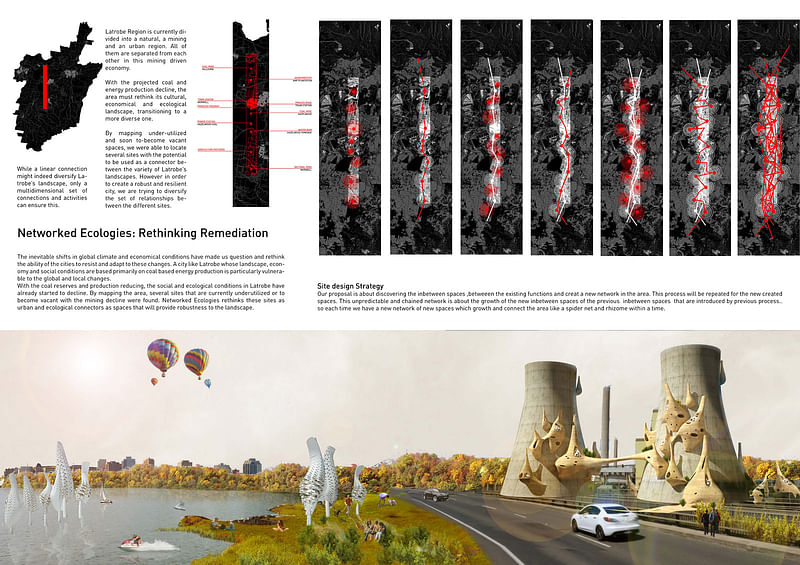
With the coal reserves and production reducing, the social and ecological conditions in Latrobe have already started to decline. By mapping the area, several sites that are currently underutilized or to become vacant with the mining decline were found. Networked Ecologies rethinks these sites as urban and ecological connectors as spaces that will provide robustness to the landscape.
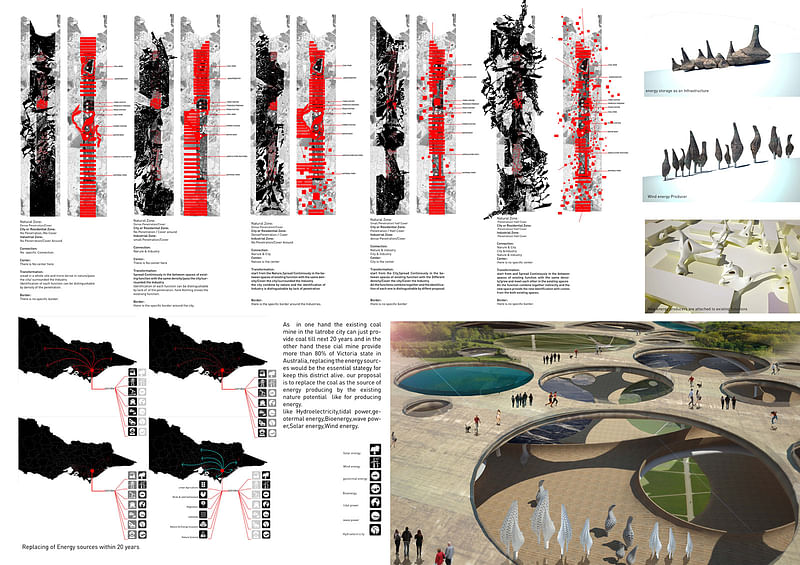
Depending on the site location and conditions, a variety of programs ranging from landscape / mining remediation, to urban agriculture are defined. These “in-between” sites will grow and develop according to the specific conditions and uses, eventually creating a network of infrastructure that will provide robustness to the city.
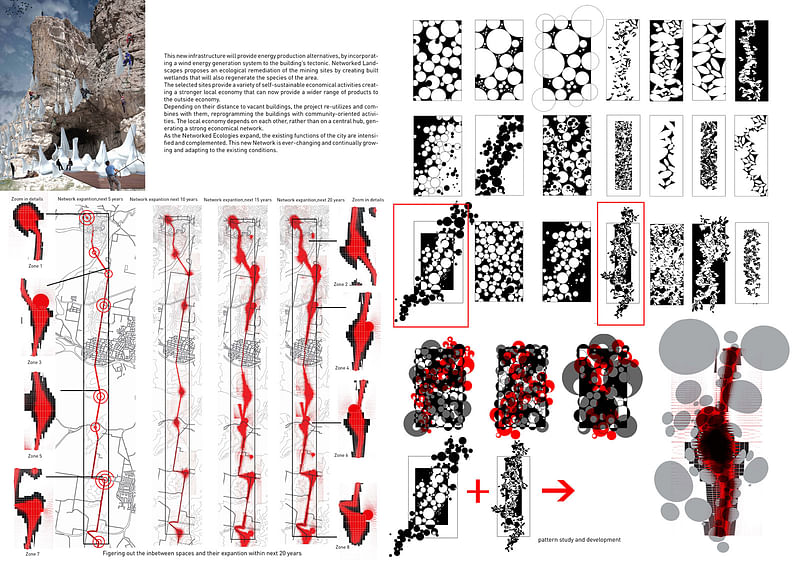
This new infrastructure will provide energy production alternatives, by incorporating a wind energy generation system to the building’s tectonic. Networked Landscapes proposes an ecological remediation of the mining sites by creating built wetlands that will also regenerate the species of the area.
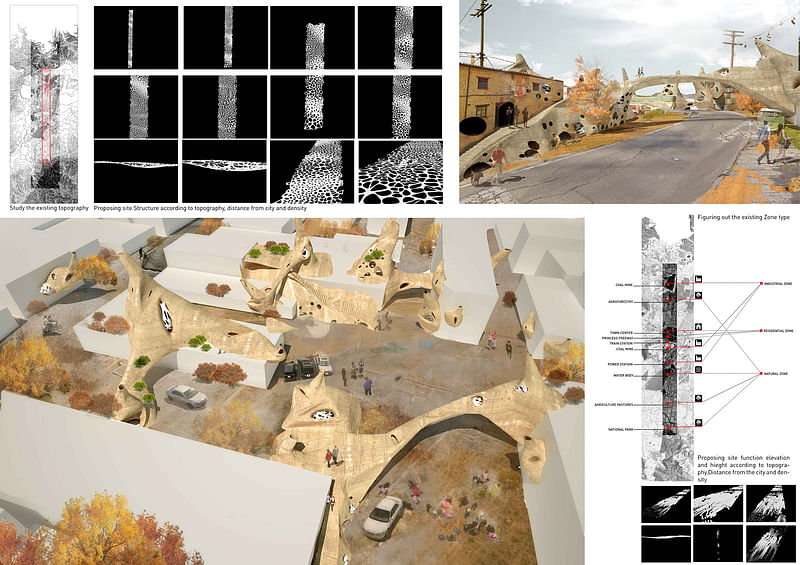
The selected sites provide a variety of self-sustainable economical activities creating a stronger local economy that can now provide a wider range of products to the outside economy.
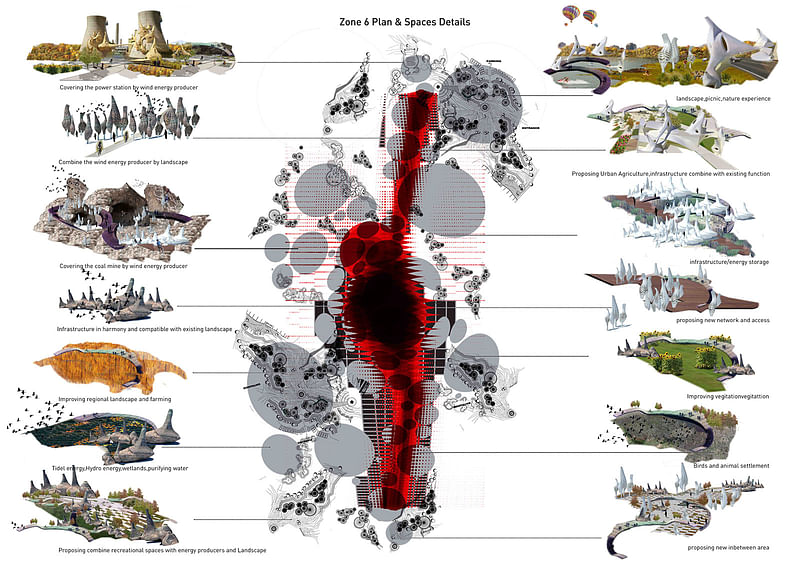
Depending on their distance to vacant buildings, the project re-utilizes and combines with them, reprogramming the buildings with community-oriented activities. The local economy depends on each other, rather than on a central hub, generating a strong economical network.
As the Networked Ecologies expand, the existing functions of the city are intensified and complemented. This new Network is ever-changing and continually growing and adapting to the existing conditions.

Share
0 Comments
Comment as :